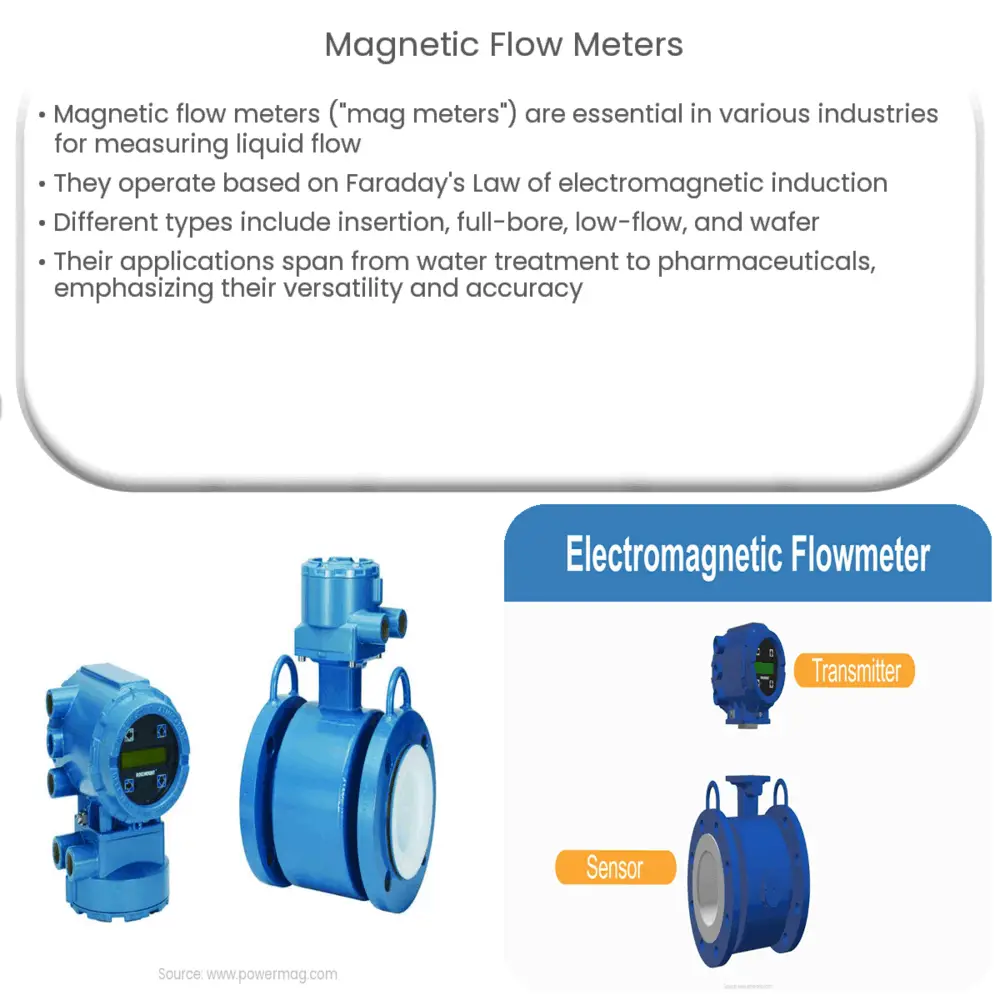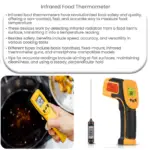Explore the functioning, types, benefits, and applications of Magnetic Flow Meters in various industries, and learn how to select the right one.

Magnetic Flow Meters: An Introduction
Magnetic flow meters, often referred to as “mag meters”, are a crucial part of many industrial processes. With their ability to accurately measure the flow of a variety of liquids and slurries, they are invaluable tools in sectors ranging from water treatment to food and beverage processing. This article will delve into the workings, types, advantages, and common applications of magnetic flow meters.
How Do Magnetic Flow Meters Work?
A magnetic flow meter operates on Faraday’s Law of electromagnetic induction. This principle states that a voltage will be induced when a conductor (in this case, the fluid being measured) moves through a magnetic field. The meter features a non-conductive pipe lined with electrodes that detects this voltage. The flow rate is proportional to this voltage, and it is this measurement that the meter uses to calculate the fluid’s flow.
Types of Magnetic Flow Meters
- Insertion: These are used when a full-bore mag meter isn’t practical or economical. They can be installed without interrupting flow, making them ideal for large diameter pipes and dirty liquids.
- Full-bore: Also known as in-line mag meters, these provide the most accurate measurements. They are installed directly in the pipe, and the fluid flows through them.
- Low-flow: These are designed for applications that require measuring low flow rates accurately, such as in pharmaceutical or chemical processing.
- Wafer: These compact mag meters are installed between two pipe flanges, making them suitable for spaces with limited installation room.
Advantages of Magnetic Flow Meters
- They provide a highly accurate, reliable, and repeatable flow measurement.
- Magnetic flow meters do not have any moving parts, which makes them less prone to wear and tear.
- They can measure a wide range of liquids and slurries, irrespective of their conductivity levels.
- They are unaffected by temperature, pressure, or viscosity changes.
As we continue to explore the practical applications of magnetic flow meters in the next section, we will also discuss the factors to consider when selecting one for your specific needs.
Applications of Magnetic Flow Meters
Magnetic flow meters are utilized in various industrial sectors due to their versatile characteristics. Let’s delve into some common applications:
- Water and Wastewater: Given their accuracy, they are frequently used in water and wastewater treatment facilities, helping to measure everything from potable water to sewage.
- Food and Beverage: The food industry uses these devices for precise measurement of liquid food products, ensuring consistency and quality.
- Pharmaceuticals: In pharmaceutical manufacturing, where accuracy and cleanliness are paramount, mag meters are used due to their non-invasive nature and precision.
- Chemical Industry: Magnetic flow meters can handle corrosive and aggressive chemicals, making them a preferred choice in the chemical industry.
- Mining and Pulp and Paper: These sectors often deal with abrasive and high-density fluids, for which mag meters are an excellent choice due to their robust construction.
Selecting a Magnetic Flow Meter
Choosing the right magnetic flow meter depends on several factors:
- The type of fluid: Different fluids have different electrical conductivities, which can impact the operation of the meter.
- The flow rate: Different meters are designed to handle different flow rates, so you’ll need to match the meter to the expected flow rate of your application.
- Installation: Depending on the available space and pipeline setup, you’ll need to decide between insertion, full-bore, low-flow, or wafer-style meters.
- Temperature and pressure conditions: While mag meters are generally unaffected by temperature and pressure changes, extreme conditions could affect performance.
Conclusion
In conclusion, magnetic flow meters are a fundamental tool in many industries due to their reliability, accuracy, and versatility. From wastewater treatment to food processing, their role is pivotal for maintaining quality and efficiency. When selecting a mag meter, it’s crucial to consider factors like fluid type, flow rate, installation requirements, and the specific environmental conditions to ensure optimal performance. With the right magnetic flow meter, businesses can improve process control, enhance accuracy, and ultimately increase productivity and profitability.




